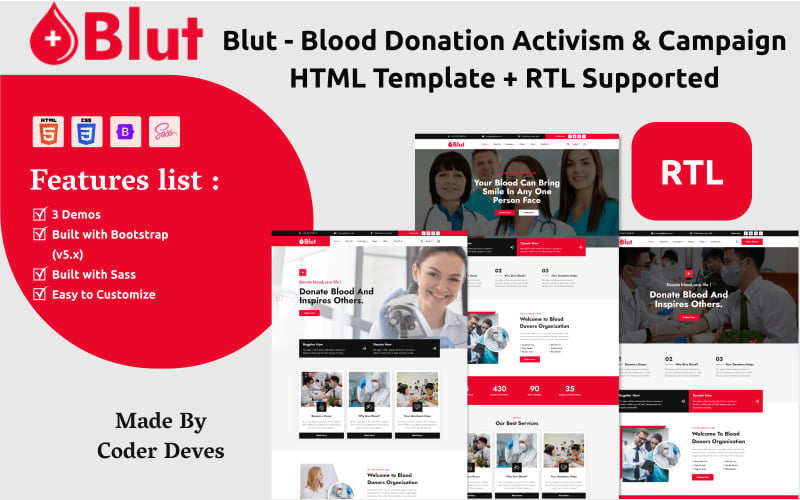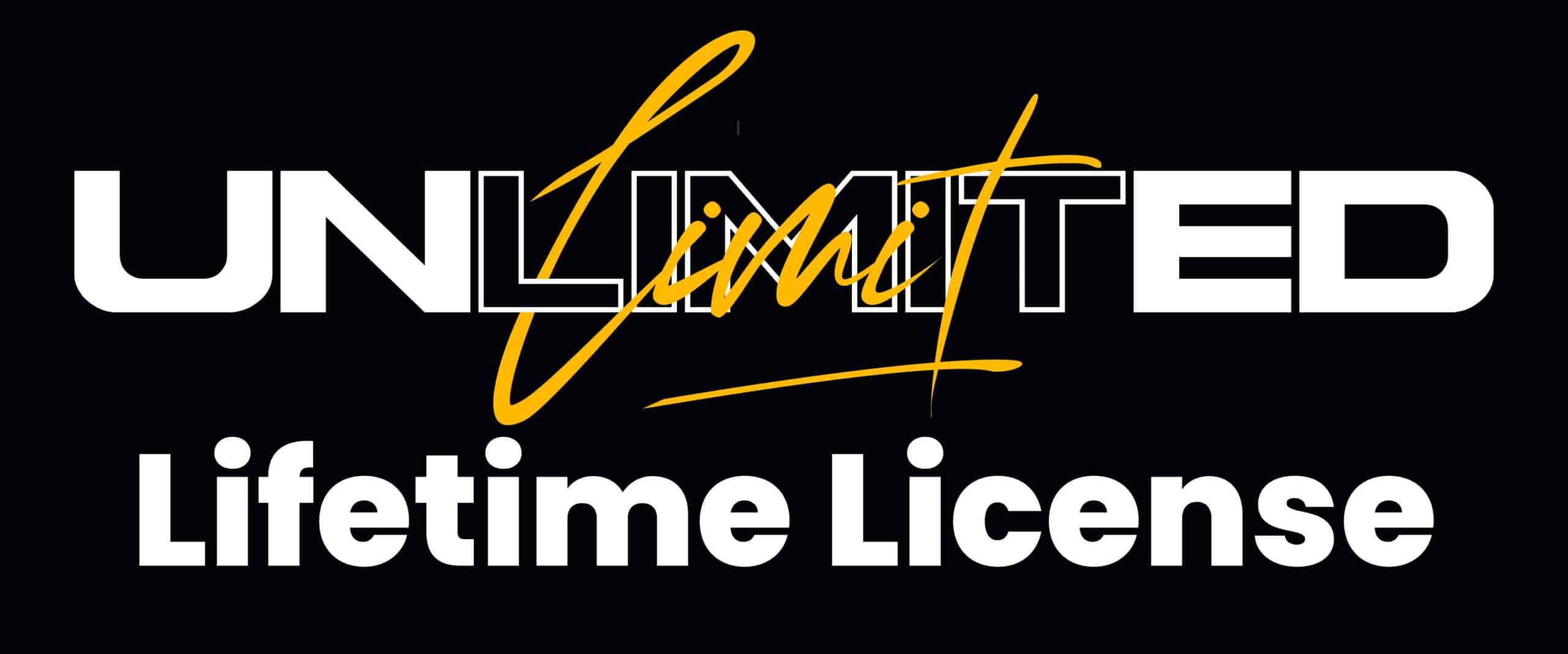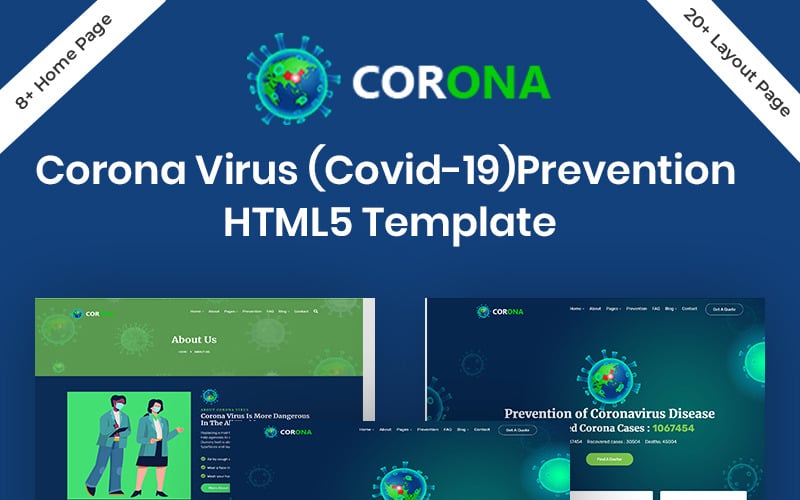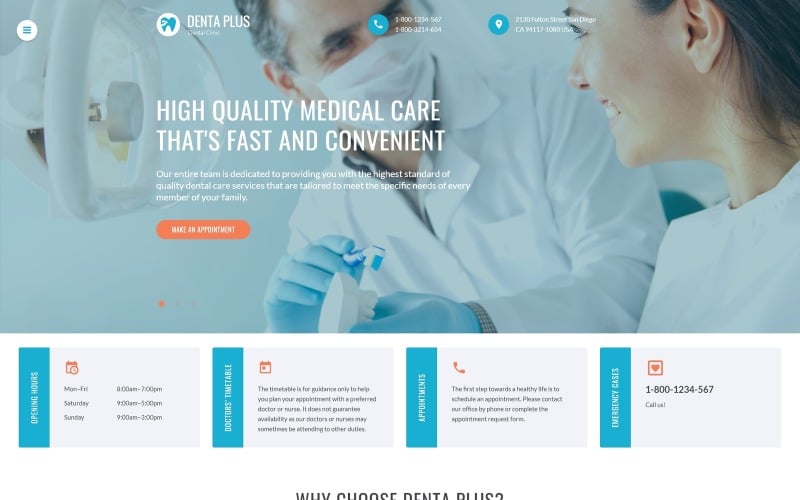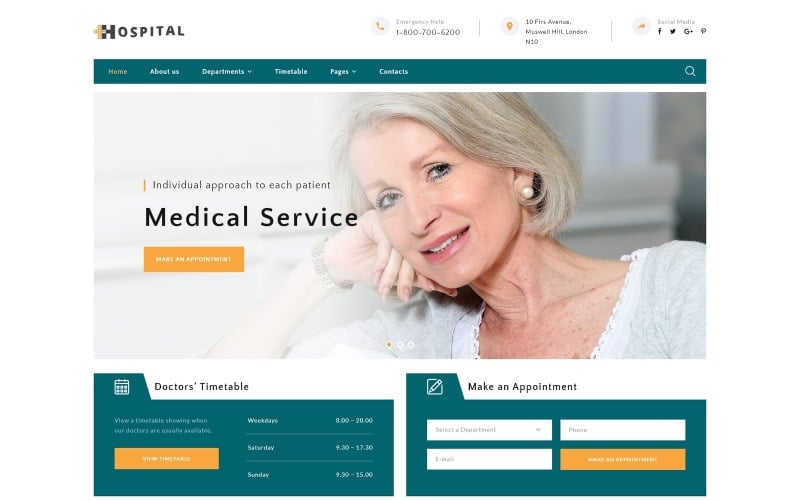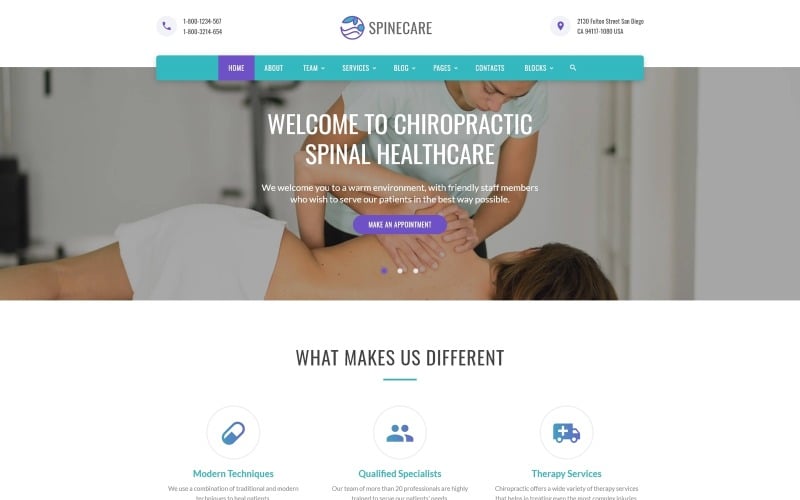
TransLogix - Logistics & Transportation HTML5 Website Template
$25.00 Original price was: $25.00.$4.00Current price is: $4.00.
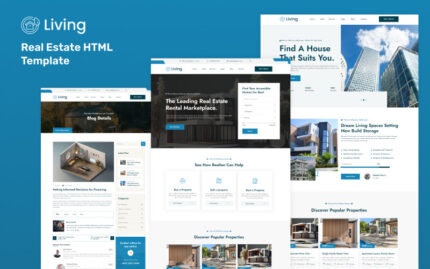
Living- Real Estate HTML Template Website Template
$25.00 Original price was: $25.00.$4.00Current price is: $4.00.
Blut – Blood Donation Activism & Campaign HTML Template + RTL Supported Website Template
2
People watching this product now!
100% Money-Back Guarantee
Creating an engaging and informative HTML template for a blood donation activism and campaign is crucial to raising awareness, encouraging participation, and ultimately saving lives. In this 500-word description, I will outline the key elements and features of such a template to ensure it effectively conveys the message and purpose of your campaign.
1. Header Section:
The header section of your HTML template should be attention-grabbing. It should include a large, compelling image of people donating blood, accompanied by a clear and concise campaign title. This section should also have links to important pages, such as “About Us,” “Get Involved,” “Donate,” and “Contact Us.”
2. About Us Section:
The “About Us” section is where you provide a brief but impactful introduction to your campaign. Share the mission and goals of your activism, the significance of blood donation, and your organization’s commitment to this cause. Use compelling visuals and concise text to engage visitors.
3. Campaign Progress Tracker:
Display a progress bar or tracker that shows the current status of your campaign. This can include the number of donors, the amount of blood collected, or the target you aim to achieve. Real-time updates can inspire more people to join and support your cause.
4. Testimonials and Success Stories:
Include personal stories from individuals whose lives were positively impacted by blood donation. Share testimonials from donors, recipients, and volunteers to humanize your campaign and demonstrate its importance.
5. Get Involved Section:
This is a vital part of your template, as it should motivate visitors to take action. Provide clear calls to action (CTAs) that encourage people to participate in your campaign. Include options for blood donation appointments, volunteering, organizing events, or making monetary contributions. Use persuasive language to emphasize the impact of their involvement.
6. Interactive Donation Scheduler:
Incorporate a user-friendly, interactive scheduler that allows visitors to book blood donation appointments online. This tool should be easily accessible and guide users through the process, making it as convenient as possible.
7. Events and Campaign Calendar:
Create a calendar that lists upcoming blood donation events, campaigns, and drives. Include dates, times, locations, and descriptions of each event. Encourage users to register or RSVP for these events directly through the template.
8. Educational Resources:
Provide resources such as articles, infographics, videos, and FAQs that educate visitors about the importance of blood donation. Highlight facts, statistics, and the impact of donations in saving lives. Promote knowledge sharing and dispel common misconceptions about the process.
9. Social Media Integration:
Include social media buttons and feeds to encourage users to follow and share your campaign on platforms like Facebook, Twitter, and Instagram. This will help expand your reach and increase engagement.
10. Contact Us Section:
Make it easy for visitors to reach out to your organization. Provide a contact form, email address, and phone number. Offer a physical address if applicable. Additionally, consider a live chat option for real-time assistance.
11. Donation Progress Bar:
Display a dynamic progress bar that showcases the total amount of blood collected or funds raised so far. This visual representation can motivate visitors to contribute and be a part of your campaign’s success.
12. Mobile Responsiveness:
Ensure that your HTML template is fully responsive, adapting to various screen sizes and devices. A significant portion of web traffic comes from mobile users, so a mobile-friendly design is essential.
In conclusion, your blood donation activism and campaign HTML template should effectively communicate the importance of blood donation, engage visitors, and drive them to take action. By incorporating these key elements, you can create a compelling and user-friendly online platform that will help raise awareness and save lives through your campaign.
You can view the products or services you have purchased under the "Orders" section in the "My Account" menu. If you encounter any issues, please feel free to contact us via our WhatsApp support line at +905469705051.
This product is delivered with an original license key.

